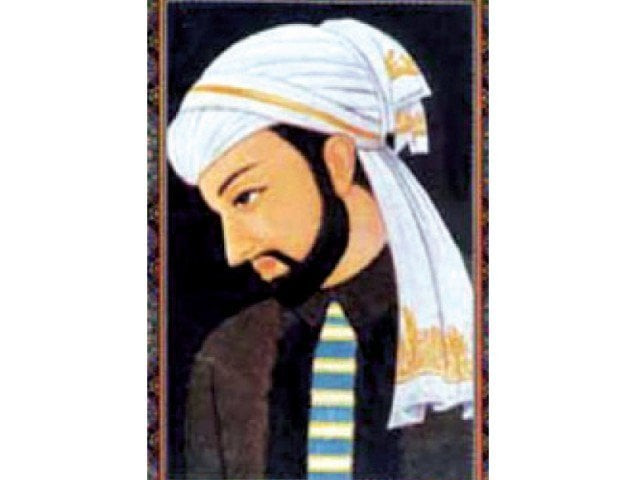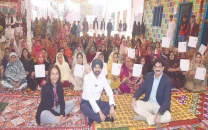Getting into Amir Khusro’s trance
Session revolves around elevated stature of the great literary genius of the subcontinent

Session revolves around elevated stature of the great literary genius of the subcontinent. Amir Khusro
"Amir Khusro was a human being who gave us a complex form of nohas," said key speaker, SAARC literary award winner 2001 and writer Zaheda Hina.
The entire session revolved around the same theme - the elevated stature of one of the greatest literary genius of the subcontinent, the profundity of his work and the plethora of emotions the man incorporated in his work and, subsequently, aroused in his readers.
The session commenced with Hashmi’s rendering of one of Khusro's poems. However, everyone was soon dismayed when the moderator of the session and one of the advocates of women rights and empowerment, specifically in the rural areas, Kausar S Khan, announced the discussion will be restricted to Khusro's wedding songs alone since the magnitude of his work was impossible to cover in an hour.
In order to delve right in the topic, the Coke Studio version of ‘Haray Haray Bans’ was played on the projector that took the audience into the heart of Khusro's festive wedding songs. The print-outs of the song were distributed among the crowd and Hina enunciated and elaborated upon the meaning of the entire poem.
From evoking vivid images of a young girl leaving the house of her father on her wedding night to humorously encapsulating the past trend of in-laws commenting on the lack of a comb in a girl's dowry, Hina touched upon sensitive topics in the great poet's work - separation and distance. She not only contextualised Khusro's work, placing it in the milieu that produced it but also emphasised upon the personality of the poet as revealed in his work.
When asked to take the literary hero forward in today's world, Hina exposed the falsity of the question and said, "I cannot dare to take that man forward when he's already there, providing a template for us to follow."
Paying tribute to Khusro, Hashmi sang a few of his poems and said when she started singing, Ustad Umrao Bundu Khan refused to explain the meaning of the work to her for fear of lack of comprehension. She paid gratitude to writer Fatima Surayya Bajiya for motivating her to compile Khusro's work, which she believes is a celebration of the poetic hero.
Taimoor Khan Mumtaz, another designated speaker, nominated Ustad Sami to take his place and the latter commented on Khusro's fame, his creation of Qawwali, its distinction from ‘Khayal’ and ‘Zikr’, and most of all, emphasised on people's misunderstanding of the ragas. He said the literary giant’s work has a ‘dhunn’ [tune] that is supposed to evoke emotions in the listeners and cannot be confused with ragas. In a brief span of time, Sami was able to lure the audience into the time of Khusro when Persian was at the peak, Urdu was beginning to emerge and Sanskrit had departed in poetry.
Khan concluded the session with food for thought - some poems were not written by the literary giant but were attributed to him - what can then be said about Khusro and people’s perception of him.
Published in The Express Tribune, February 6th, 2016.



















COMMENTS
Comments are moderated and generally will be posted if they are on-topic and not abusive.
For more information, please see our Comments FAQ